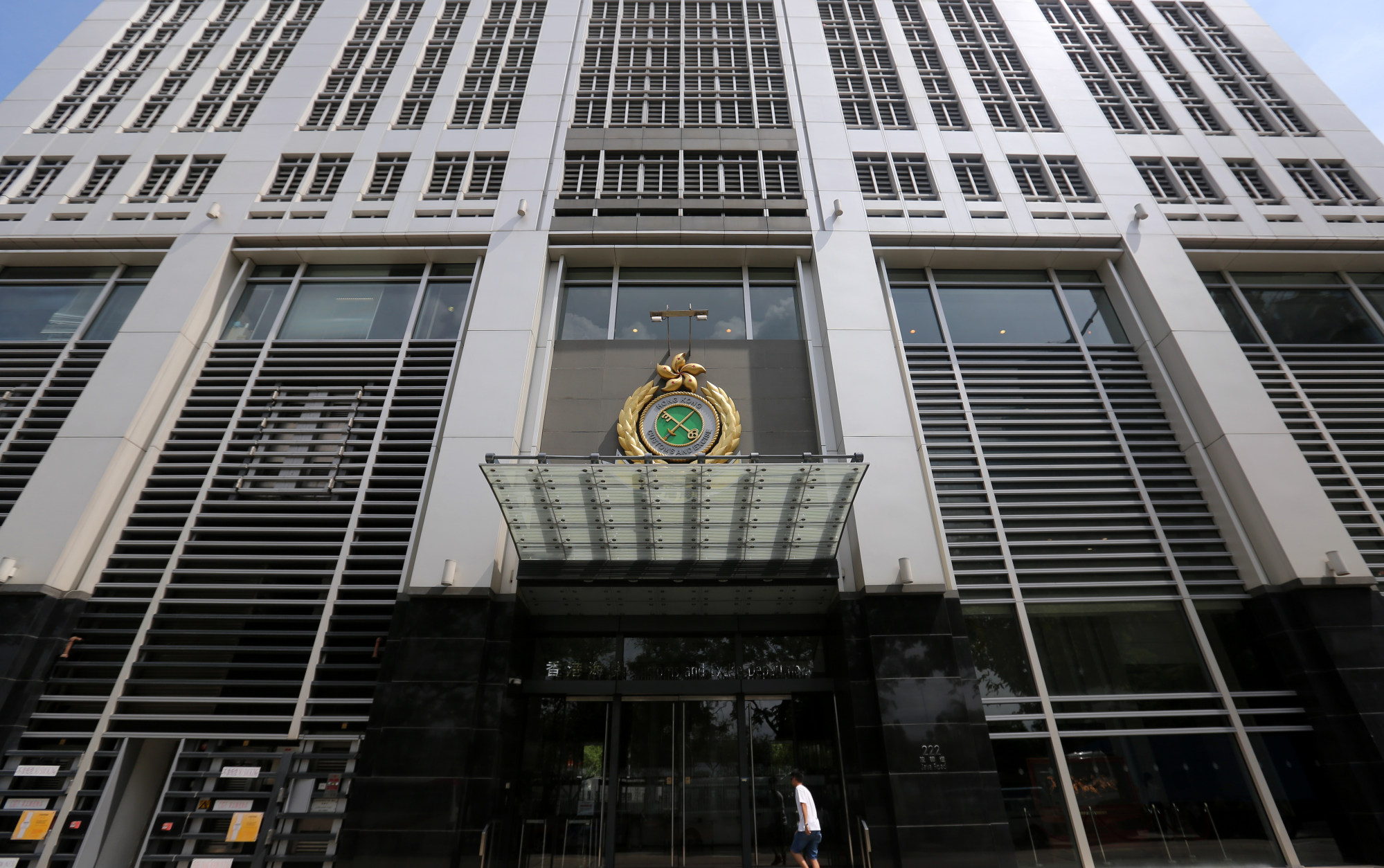
4 suspected core members of Hong Kong syndicate arrested over HK$600 million money-laundering case involving 750 bank accounts over 2 years
- Customs says suspicion sparked when it was observed the money held in suspects’ accounts was not commensurate with their incomes
- Half of all the account holders involved believed to be mainlanders, with authorities still trying to track them down
Hong Kong customs officers have arrested four alleged core members of a money-laundering syndicate behind HK$600 million (US$76.4 million) suspected to have been funnelled through more than 750 bank accounts over the past two years.
An investigation revealed three of them set up e-wallets on a cryptocurrency trading platform in Singapore that were used to collect HK$50 million in Tether (USDT) before transferring this into 64 local bank accounts belonging to the four.
“We discovered that multiple times, the [holders of three e-wallets] converted cryptocurrency into US dollars and then transferred the money into their local bank accounts in several minutes on the same day before the funds were channelled out,” Assistant Superintendent Ryan Chan King-wai of customs’ syndicate crimes investigation bureau said on Saturday.
He added that the syndicate made use of the anonymous features of cryptocurrency trading to help others transfer money from unknown overseas sources into Hong Kong to hide the origin of the funds.

The remaining HK$550 million was transferred from 440 other personal accounts and those of shell companies in Hong Kong between February 2020 and March 2022.
All HK$600 million was laundered through the suspects’ accounts before being funnelled through another 215 local bank accounts.
The cash was also suspected to have been laundered through layers among 215 accounts, and some of the funds were channelled out of the city through two money exchange companies, Chan said.
The Post learned this portion of the money was transferred into mainland China bank accounts. Customs officers are tracking down the remaining funds.
A law enforcement source said part of the suspected crime proceeds was swindled money, but he stopped short of revealing more details.
He said an initial investigation suggested half of the account holders involved in the case were mainlanders, adding authorities were still trying to identify individuals behind all the bank accounts involved.
Hong Kong siblings arrested on suspicion of laundering HK$384 million
Customs began investigating the syndicate late last year.
The source said the four suspects – two men and two women aged between 32 and 54 – were recruited by the syndicate with “monetary rewards” to collect and process the funds. One of the women is a housewife and the other a clerk while the other two are a company manager and a hotel worker.
According to the Customs and Excise Department, they are holders of 64 accounts from 10 local banks that were used to collect and launder the money.
Besides the housewife, the other three have an average monthly income of between HK$20,000 and HK$30,000 each.
“The investigation showed there were more than 4,000 transactions in their bank accounts, involving HK$600 million over the past two years,” the source said, adding that the biggest single transaction was HK$3 million.
He said the amount of money their bank accounts handled was not commensurate with their incomes and this sparked the investigation.
“The money was deposited into their bank accounts and usually transferred out within one or two days. Some of the funds made a U-turn and were transferred back into their own accounts. This is a traditional money-laundering tactic,” he said.
Hong Kong’s dirty money sleuths track criminals’ switch to cryptocurrency
After a five-month investigation, customs officers swooped into action and arrested the four in a series of raids in Kwun Tong, Sha Tin and Yau Ma Tei on April 28.
They were detained on suspicion of money laundering – an offence punishable by up to 14 years in jail and a HK$5 million fine. They have been released on bail pending further investigation.
During the operation, authorities froze more than HK$1.78 million in several of the suspects’ bank accounts. Officers also seized phones, computers and a large quantity of documents such as bank statements.
Customs officers are still trying to track down the ringleader and other core members of the syndicate. The department will seek help from mainland and overseas law enforcement agencies to investigate the source of the money, final recipients of the funds and the types of illegal activities that had generated it.
Assistant Superintendent Chan urged the public not to use their bank accounts or e-wallets to handle money from unknown sources. “Regardless if you receive monetary rewards, this is in breach of the law,” he warned.
Customs smashes gang smuggling HK$166 million over Hong Kong-Zhuhai-Macau Bridge
In September 2020, customs officers arrested five members of a family accused of laundering over HK$3 billion through more than 100 personal bank accounts, along with the owner of a money exchange business. It was the biggest money-laundering case detected by customs.
The city’s largest-ever money-laundering case – involving HK$13.1 billion – came to light with the 2012 arrest of a 22-year-old mainland man.
He had laundered the money through his bank accounts between August 2009 and April 2010, making 4,800 deposits over an eight-month period. In January 2013, he was sentenced to 10½ years in jail.
In Hong Kong, banks, securities and insurance companies, legal and accounting professionals, and property agents are required to report suspicious transactions.
In the first four months of this year, the Joint Financial Intelligence Unit, comprising police and customs officers, handled 21,329 reports of suspicious financial activity.
Figures from the unit show reports of suspicious financial activity dropped from 92,115 in 2017 to 56,912 in 2021.

